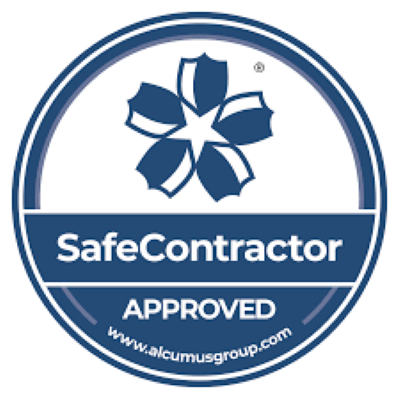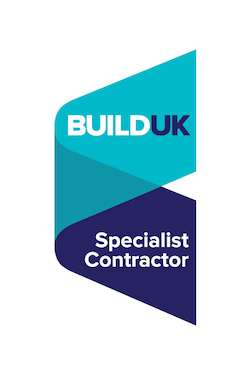Striving for a Greener Planet in the Commercial Catering Industry
Striving for a better greener planet has been a high priority for a long time. With COP26 taking place in Glasgow next week businesses really need to ensure they help to make a difference to the world we live in.
Pollution levels are at an all-time high, global warming is slowly increasing and our seas are becoming clogged with discarded rubbish and plastics – as a business, we at Ceba, do our best to ensure we work with sustainable products, reduce our carbon footprint and generally undertake more environmentally friendlier practices, but as a whole, what can the hospitality and catering industry do to help work towards a greener planet?
Implementing big changes can cause disruption to businesses and sometimes have a negative effect but by implementing changes in small steps we can, as an industry, begin to help to make a difference.
Adapting to new technologies
Many hospitality and catering businesses are looking at installing more versatile catering equipment that can be used for more than one type of cooking:
- Combi ovens
Precision controls of the combo oven mean you can cook, steam, roast, smoke, braise, bake, re-therm and much more. They take up less space and provide versatility in the cooking process – meaning there is no need for duplicated equipment, there is also a hood-free option which reduces the need for ventilation.
- VarioCooking centres
A cooking centre allows you to easily cook large quantities of food quickly and with precision.
- Pasta boilers
Pasta boilers are designed to quickly boil a number of different types of foods from pasta to noodles to vegetables – they are essentially very much like deep fryers and even use a similar cooking process but pasta cookers use water instead of oil and offer a very hands-off approach to cooking. It has been noted that cooking in pasta cookers has a 34–66% lower impact on the environment than using range tops (hobs).
By switching to more economical commercial catering equipment means there is less use of the equipment and reduces the amount of energy used as a result.
Energy use – appliances
There is no excuse for not buying the most energy-efficient equipment anymore, every piece of equipment has an energy rating – so making sure you are buying the most efficient catering equipment for your budget will allow you to lower your energy costs in the long run and help to reduce the carbon footprint of your business.
Making sure appliances are switched off when they are not in use will also reduce the amount of energy your business is using – the same applies to refrigeration units, don’t turn your refrigeration up in the summer, doing this does not help keep produce stay cooler, all it does is use more energy and make the refrigeration unit work less efficiently. So, keep the controls down!
Old equipment – what to do with it?
Disposing of old commercial catering equipment can be a pain, don’t just remove it and leave it outside or in a room where all old equipment goes for the rest of its days! There are companies that will come to your premises remove the equipment and take it away to be recycled in an environmentally friendly way. Using these companies helps to reduce the amount of unnecessary waste that will go to landfill sites which increase land pollution.
Cleaning and maintenance
The cleaning and maintenance of your commercial catering equipment is essential for every catering business, bad cleans can equal business closures. However, there are also environmental reasons for keeping your equipment cleaned and regularly maintained, they keep your equipment at its most efficient which means reduced wasted energy, it also means your commercial catering equipment will last longer, costing you less and reducing the disposal of equipment that hasn’t met its end of life expectancy.
Cleaning should be carried out in line with health and safety legislation and manufacturer guidelines.
Zero waste initiative
What is the zero waste initiative?
Zero Waste is a philosophy and design framework that promotes not only reuse, recycling, and conservation programs, but also, and more importantly, emphasises sustainability by considering the entire life-cycle of products, processes, and systems.
Have you looked at how much packaging you use or food you waste? Make sure you have a recycling area in your kitchen that is clearly labelled and consider reducing food waste that is produced each day, make smaller batches of food or store food in equipment that can keep it warm for extended periods. Consider turning waste food into compost which can then be given to local farmers to grow vegetables.
Reducing the waste produced as a business is something that can be implemented by all businesses – start by making small changes to your usual procedures.
Packaging
Packaging is a hot topic as it is one area that is having the biggest impact on the environment, consider using more recycled packaging materials to reduce the amount of rubbish going to landfills, you can read more about this in our blog Sustainability, Composite Packaging and your Catering Facility.
Shop local
There are so many benefits to shopping and buying local produce, less energy, reduced carbon footprint, helping the local community, building strong local business relationships and advertising that you use local produce to your customers which is a great way to get customers through the door.
This is our time to make a difference, make sure you spend time reviewing the way you produce your food – doing this will allow you to identify areas where you can make a positive impact on the environment and see a decrease in your running costs. Making these changes collectively will help to make a greener planet and will benefit businesses by making a valuable statement to customers that the environment matters to your business.

























